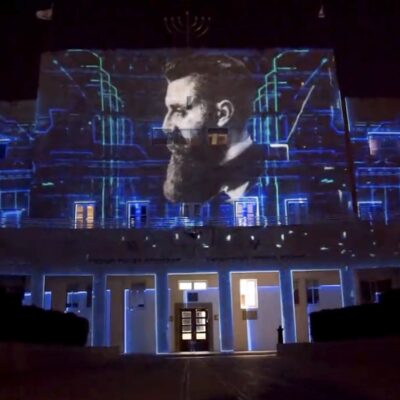Opinion
INVISIBLE WOUNDS
Beyond the battlefield: Why mental health must be part of Israel’s war effort
When the sirens wailed in October 2023, I was already thinking about October 2033.
As a reservist company commander called up for the Swords of Iron war, I had a unique vantage point that haunted me throughout those early, chaotic weeks. Having served as a deputy company commander in the 2014 Gaza operation, I understood something many didn’t: The war would eventually end, but for those who fought it the battle would continue long after the last rocket fell silent.
In those initial days, the outpouring of support from Jewish communities worldwide was nothing short of extraordinary. Donations flooded in: tactical gear, helmets, body armor, and medical supplies. American Jews lined up at airports with duffel bags stuffed with equipment for soldiers. WhatsApp groups buzzed with requests from units desperately seeking basic supplies that, frankly, a modern military should have readily available.
I watched this mobilization with deep gratitude but also growing concern. While everyone focused on protecting our soldiers’ bodies (and rightfully so), I couldn’t stop thinking about who would protect their minds.
The equipment we can see and the wounds we cannot
The early weeks of the war exposed uncomfortable truths about military preparedness. Reports surfaced of soldiers heading to Gaza with outdated helmets from the 1970s and insufficient protective gear. Units scrambled to equip hundreds of thousands of reservists called up in the largest mobilization in fifty years. Grassroots efforts emerged to fill critical gaps, but these donation drives revealed something important: not all units receive equal attention. Elite reconnaissance units and prestigious formations with powerful alumni networks often attract significant donor interest and support. Meanwhile, the bulk of our military (regular infantry units, armor crews, and support formations) represents the backbone of our defense but may lack the same donor visibility.
This reality extends far beyond the battlefield. When the war ends, veterans from all units will need support transitioning back to civilian life, but the availability of that support often correlates with the prominence of their military service rather than the intensity of their combat experience.
Our tradition teaches us that the imperative of pikuach nefesh (saving a life) overrides almost all other commandments. But what constitutes saving a life in the 21st century? Is it only about deflecting bullets and shrapnel, or does it extend to healing the psychological wounds that can devastate a person’s capacity to live fully?
The Talmud speaks of refuat hanefesh alongside refuat haguf (healing of the soul alongside healing of the body), yet our communal response to this war has been overwhelmingly focused on the latter. We mobilized to protect soldiers’ bodies with remarkable efficiency. Can we mobilize with equal vigor to protect their psychological well-being?
More importantly, can we ensure that this support reaches the vast majority of our forces: those serving in regular combat units who form the core of Israel’s military strength? Their service is equally valuable, their sacrifices equally significant, and their psychological wounds equally real.
Rethinking philanthropic balance
The equipment donations saved lives and demonstrated unprecedented solidarity. Now we have an opportunity to apply that same urgency and scale to an equally critical need that has received far less attention.
What if we applied that same innovative spirit and resources to funding mental health programs? What if we treated PTSD prevention and treatment with the same urgency we showed for ballistic protection?
The model exists. Programs combining wilderness therapy, group processing and cutting-edge research are showing promising results. These initiatives understand that healing from combat trauma requires more than traditional therapy. They demand comprehensive approaches that address the whole person within their military unit and community context. Most importantly, these programs can serve veterans from all backgrounds and units equally.

There’s also a strategic imperative here. Israel’s security depends on winning wars, and it also requires ensuring that those who fight them can return to productive civilian life. The majority of our military consists of regular combat units: infantry, armor, artillery, and combat engineers. These are the forces that hold territory, secure our borders, and bear the brunt of sustained operations.
Yet these units, despite their critical role, often receive less philanthropic attention than more specialized formations. When we focus our post-service support primarily on elite units, we risk neglecting the mental health needs of the vast majority of veterans who served with equal dedication and faced equal dangers.
Every reservist called up answered the same call to defend our nation, whether they served in intelligence, infantry or logistics. Each deserves access to quality mental health support that matches the scale of their sacrifice.
A call to strategic action
The grassroots donation networks that emerged during this war proved something remarkable: When the Jewish community identifies an urgent need, it can mobilize resources at an unprecedented scale and speed. Now we must apply that same innovative energy to veteran mental health.
This means funding research into therapeutic approaches that work specifically for combat veterans. This means supporting programs that bring entire military units together for processing and healing. This means recognizing that wilderness therapy, group counseling and long-term community support are as essential as tactical gear.
Most importantly, this means ensuring that these resources serve the full spectrum of our military. The infrastructure should support the most visible units, and it should equally serve every soldier who served. The infantry reservist deserves the same quality mental health support as the intelligence analyst. The tank crew member needs the same access to healing programs as the special forces operator.
The same grassroots networks that so effectively equipped our soldiers can pioneer innovative approaches to mental health support. These can be smaller, focused initiatives that serve veterans with efficiency and direct impact.
As we continue supporting Israel through this challenging period, let’s remember that true victory encompasses winning the war and ensuring that those who fought it can rebuild meaningful, productive lives afterward. The Jewish community’s remarkable capacity for emergency mobilization must extend to the equally urgent task of healing our heroes’ invisible wounds.
The time to act is now. We should act before we count the psychological casualties, while we still have the chance to prevent them. Every soldier deserves to return home physically protected and psychologically equipped to thrive in the life they defended.
This is our opportunity to show the same innovation, the same urgency and the same generosity toward mental health that we showed toward physical protection. Our soldiers protected us. Now we must protect their ability to heal.
Roei Friedberg is chairman and co-founder of Healing in Nature, a nonprofit organization providing comprehensive mental health support for IDF combat veterans. A company commander in the IDF’s 890th Paratroopers Battalion, he served as a reservist during the Swords of Iron War.











